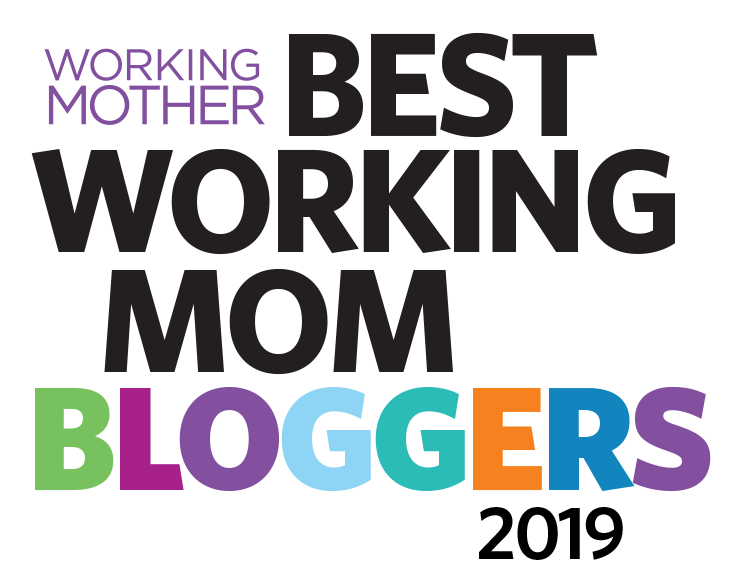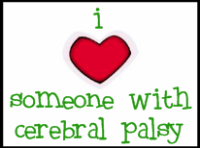Inclusive classrooms and activities are an amazing thing. But as some of us know, the going isn't always smooth. How do you pave the way? Find inclusive opportunities? Answer other kids' questions? I recently got to bounce these questions off Sharon Terreault, Director of Early Childhood Education at Meeting Street, an inclusive school in Providence, Rhode Island for tots to 21-year-olds. Their goal: "To create an environment, and ultimately a world, where individuals of all abilities learn, play, work, and live together." A-MEN!!!
Sharon's also mom to a 19-year-old with autism, Kyle, so she was able to speak as both an expert and a parent of a kid with special needs. Here's what she had to say:
If your child is not in any sort of inclusionary environment, what should you consider?
"Inclusion is something that benefits all kids, with and without special needs, emotionally and socially. Families with multiple kids make it work fine—we adapt in our routines, and siblings learn so much from each other. Why shouldn't inclusion be a success in a school? Of course, there may be academics that may have to happen outside of an inclusionary setting—it depends on the child. Kids should have inclusion to the extent they are capable of. With autism, for example, it's not OK to have one child with autism in a class of 25 kids. But perhaps for other parts of the day, inclusion might be appropriate! It's so beneficial.
Can you share some benefits of inclusion you've seen among kids with special needs?
"There's a little guy now in the kindergarten program whose mom told me, 'I can't believe how much language my son developed over the school year because of the friends he made.' Kids at school aren't thinking 'Oh, he has special needs.' They're in your face, they're asking you questions and saying 'Let's play!' I think of other families who have said, 'My child was invited to a birthday party. I never in a million years thought my child would be invited to a birthday party outside of our family.' That's all you want for your kids—to be a part of what every other kid is a part of. And to be happy."
How do you find inclusionary activities in your area?
"Libraries have programs. Cub Scouts are inclusionary, and Special Olympics has peer activities that pair up kids with special needs with typical kids. There's also Best Buddies International. Inclusion can be good for parents, too. Having a child with special needs can be isolating. Back when Kyle was little, even though I was in the field it was hard for me to be around friends with kids who were the same age, and their kids were perfectly fine and mine wasn't. Like at Gymboree, where other kids were walking and Kyle was almost two and not walking. Over time, you accept differences and come to terms with them. Now, I want my son to be in it all! Kyle is starting to enter the adult world. This past summer, instead of doing an extended school year we did a program that had community placement and he worked two days a week at the mall passing out coupons for Auntie Annie's pretzels, and he loved that. And a couple of mornings a week he worked in an office shredding paper, and he did a good job with that, cause that's his job at home."
What are good ways to encourage kids to do inclusive programs, even if they're tentative?
"First, talk with the leaders and outline your child's needs and, ideally, what should happen. What I sometimes do for my son is a social story of how he will go through the experience, so that over the course of the weeks leading up to the event I've rehearsed it with him and it's not so scary. My son loves going to the beach, but has a hard time coming out of the water. So I have a social story on our trip to the beach: We play in the water, we come out and rest, we have a snack, we talk to each other. I made up a little book."
OK, so do you think it's best to let other kids in a group know a kid with special needs will be joining them? I decided not to do that with Max and cub scouts, but some people thought I should have.
"I think that kids encounter all kinds of people every day and they will be curious when they see someone who's different, but when you make more of an issue and say we have a kid coming in, say, in a wheelchair, it highlights the differences versus just having your child come in."
Thanks for that affirmation! And if other kids ask questions about your child, what's the best way to address them?
"Answer the questions and don't sugar-coat things. For example, if kids ask why a child walks differently you can say 'Some kids' muscles work differently than yours do.' Kids are accepting—they ask their questions and then they're like, OK! In our school, it's so great how the kids encourage each other. I'll see kids reading a book together and one child has fine-motor issues and turning the pages is difficult, so the other child is more than happy to do that. I remember in one preschool classroom, there was a three-year-old who had started using a walker. One of the other kids grabbed a chair and pretended it was a walker to show her how to walk with it and said, 'Come on, you can do it!' I see that all the time."
This is one of a series of posts sponsored by CVS Caremark All Kids Can, a commitment to making life better for children with disabilities. They are a longtime supporter of Meeting Street, and provide major annual funding. "Like" them on Facebook!













Ellen, extreamly interesting as I just went to a meeting yesterday sponsered by the NYC Board of Ed. Turning 5 for kids in Special Ed. This is a great story that helps me feel OK with the fact that my child will be in an inclusion class. The timing was perfect. Thank you so much, as I am already having panic attacks for September.
ReplyDeleteI agree with Sondra. Great timing as we're currently evaluating the right school situation for our son for next year. My inclusion concerns are less about the other children and more about the teacher. My fear is that teachers are so overwhelmed by children on IEPs etc. that they'll resent having my son in class.
ReplyDeleteSondra--sadly, as I guess you already know, the NYC BOE is sometimes all about doing what will save them money rather than what is best for the child.
ReplyDeleteHope and pray for a great school year obviously--but have a good educational advocate or lawyer in mind just in case the year doesn't go as well as you'd like!
Glad this was helpful! I often think about switching Max to an inclusionary school setting, but it is just not right for him right now. So we'll continue to focus on finding other inclusionary activities for him.
ReplyDeleteOn how to tell other children about your child with a disability, I learned so much from Billy's brother. Billy is now an adult but as a little boy with Down syndrome, he did attract attention.
ReplyDeleteOne day Billy,about 3 yrs old, and his brother Tom, 5 yrs old, were taking a walk.Some children stopped them and asked Tom, "What's the matter with him? Why can't he talk?" With alarm I asked Tom what his reply was.
He said, "Well I told them that some kids are smart and some are sweet. Billy is one of the sweet ones."
I explain my CP to kids like it's a telephone....sometimes when you call someone you get the wrong number..like when my brain calls my hand to get it to move one way it might not get there completely and I'll only move alittle bit or get a different number and I'll move my foot instead...or get lost and nothing will happen. If you think really hard about remembering a phone number and concentrate on it you can dial the right one just like if I think really hard about something, my hand or foot etc. will do it I just have to concentrate a lot an it might not happen as fast. HAPPY United Nations INTERNATIONAL DAY OF PERSONS WITH DISABILITIES...(tomorrow Dec. 3rd):)
ReplyDeleteWhat a great article! Thanks for sharing... My boy is in an inclusive pre-k class right now, and it's just wonderful.
ReplyDeleteHave you read "From Disability to Possibility" The Power of Inclusive Classrooms by Patrick Swartz? Sebastian goes to school in an inclusive nursery school and it is AWESOME. I don't ever want him to leave! Working with the public system is another story. Inclusion only works if everyone is on board and it is done properly. Check out the book if you haven't, it's fantastic.
ReplyDeleteI worked for a wonderful public school district that attempted inclusion whenever possible!
ReplyDeleteOne great program was the "Buddy System". A regular ed. kid would be paired with a special ed. kid for special activities and P.E. It was amazing to see how the kids bonded!
The regular ed. kid would become more sensitive and the special ed. kid would become more tolerant!
It was amazing to see children with Autism allowing their buddy to hold their hands or push them on the swing or help them throw a ball!
It frequently brought tears to my eyes!
Love this post. Thanks for sharing!
ReplyDeleteI like beginning band!
ReplyDeleteI was the wall and the moon for an English assignment.
ReplyDelete